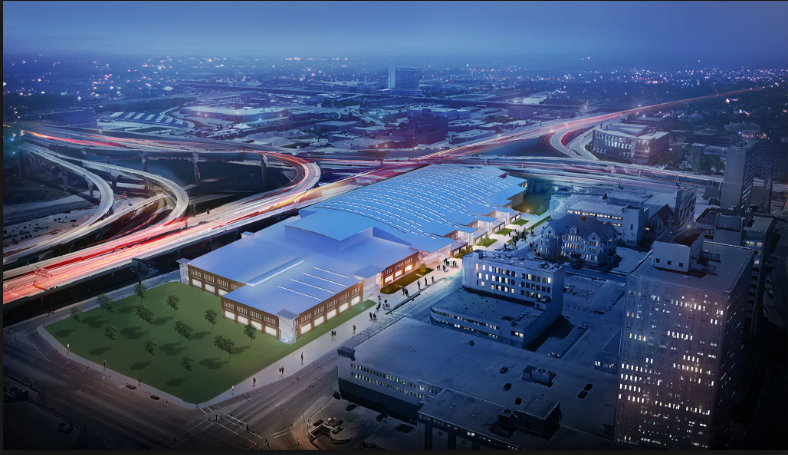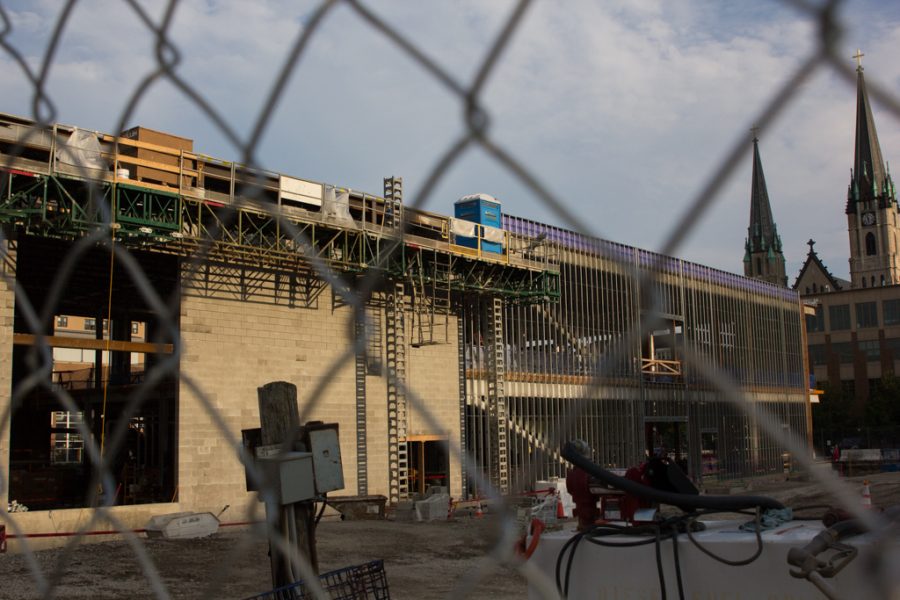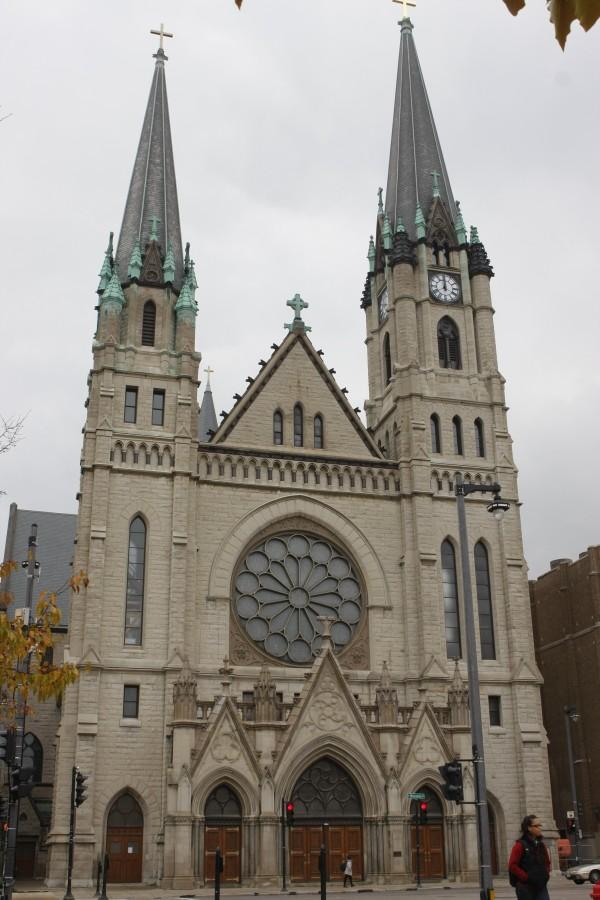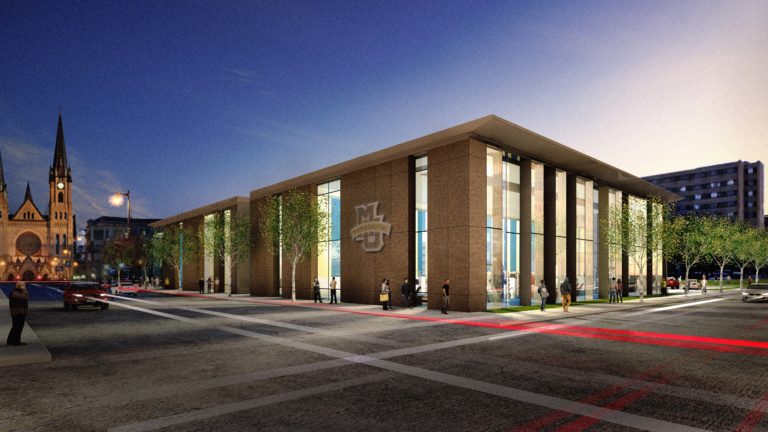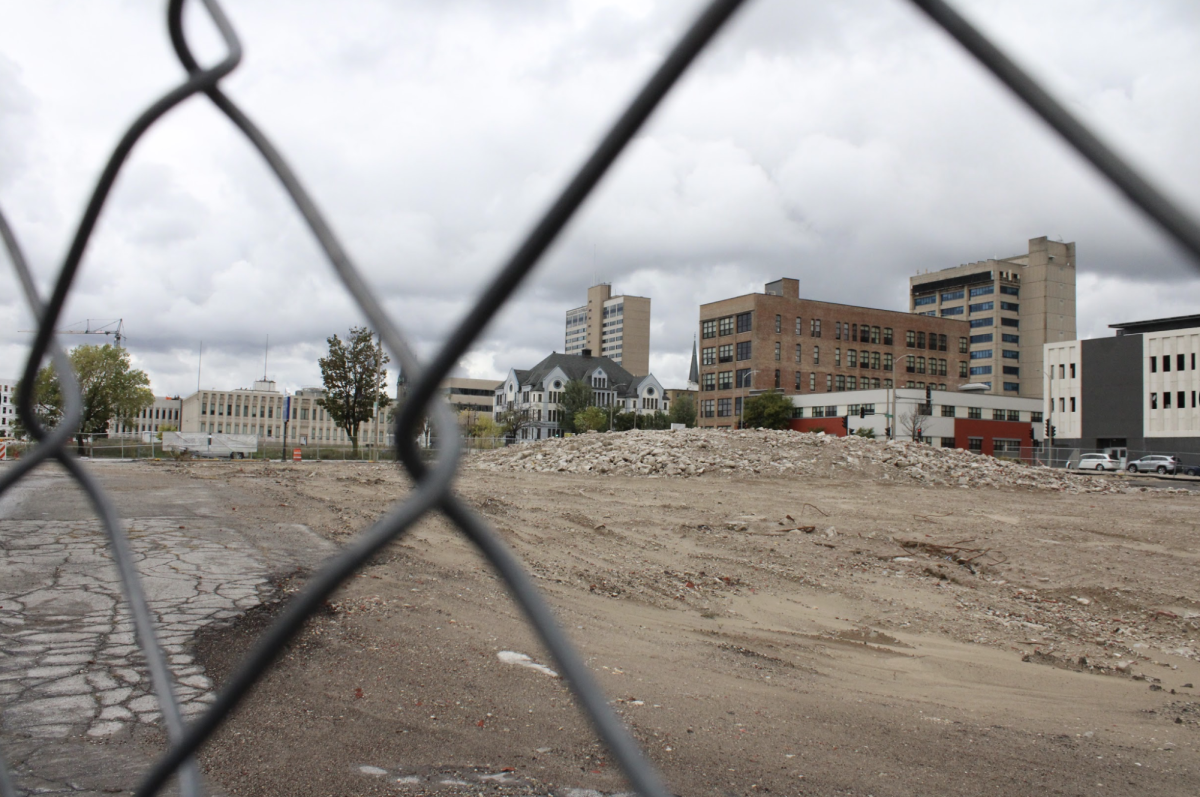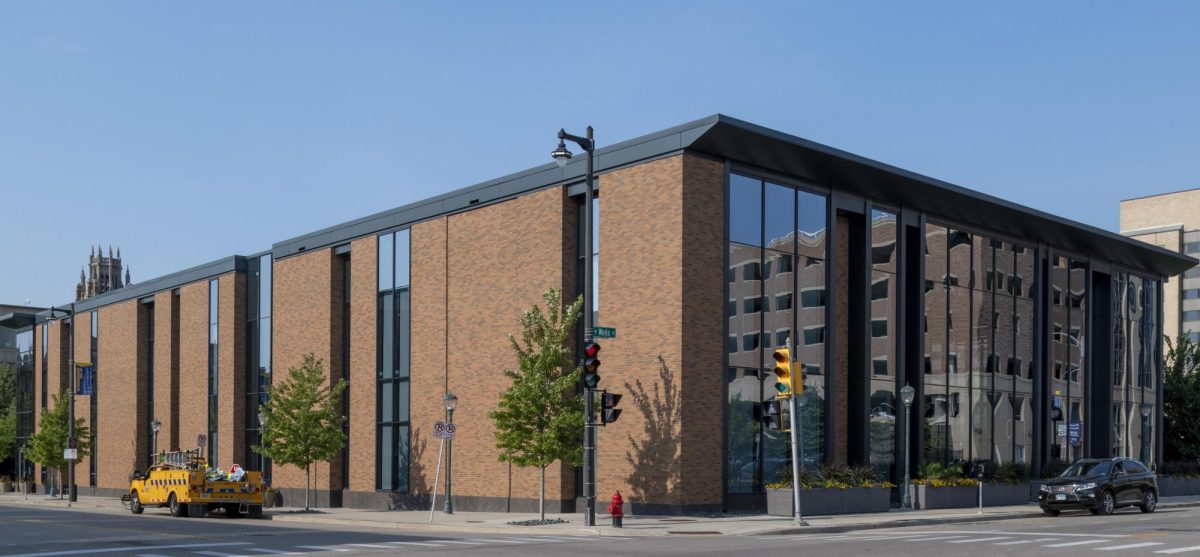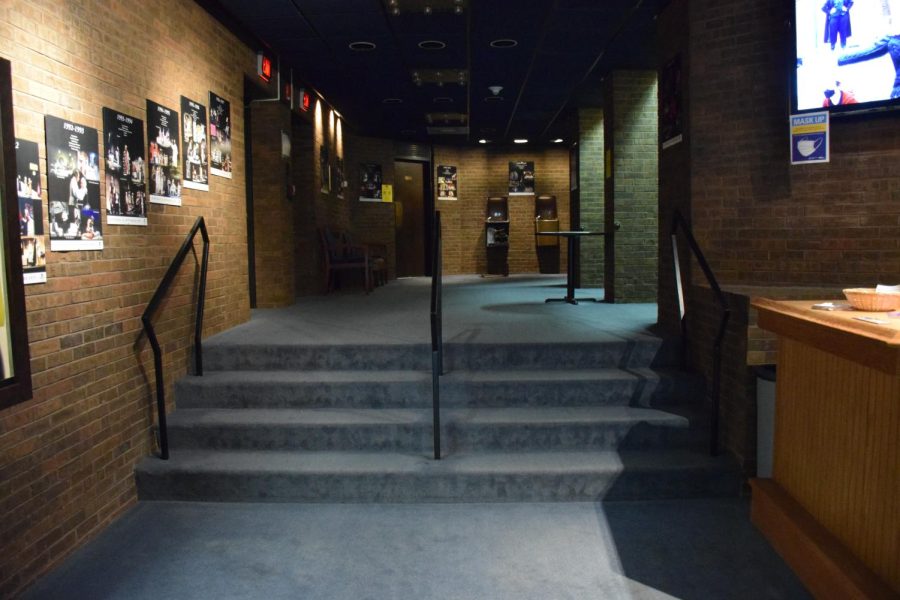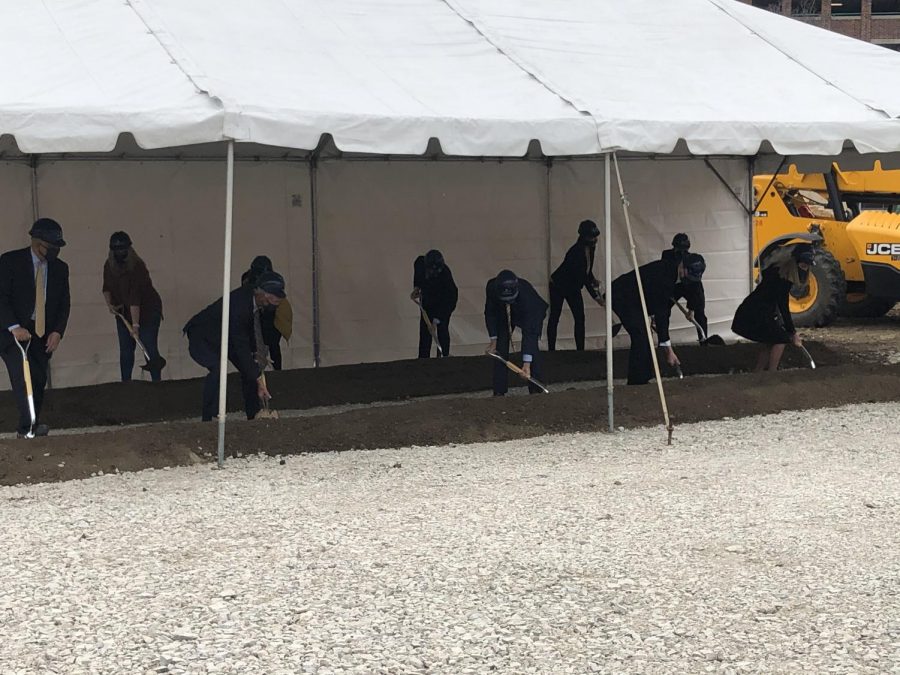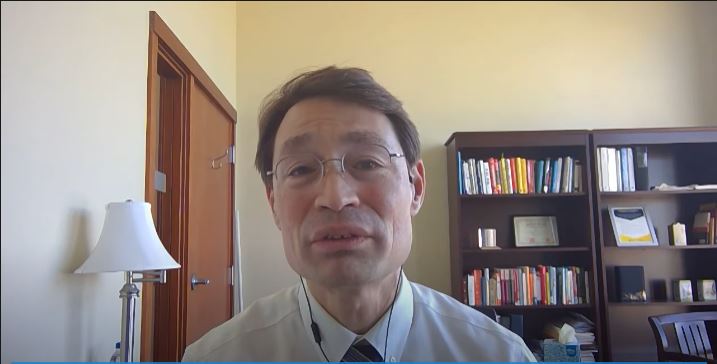University officials outlined their plan for major construction and development projects that will dominate the upcoming school year.
University President Michael Lovell said that campus buildings need to be up-to-date in terms of technology and learning environments. Otherwise, it will be tougher for Marquette to attract prospective students, and will be a disservice to current students. “If we don’t evolve the spaces on our campus, we’re going to become irrelevant,” he said.
Lora Strigens, vice president for planning and strategy, outlined a framework that will include, among other things, new projects, updates to current buildings and more collaborative space. She said that the plan to build new living spaces and a dining hall on 17th and 18th streets will be implemented as the first part.
Despite tremendous changes in technology and higher education during the past three decades, Lovell noted that many parents mentioned that McCormick Hall hadn’t changed in 30 years.
“Student life is so important,” Lovell said, adding that students “want dormitories to not just be a place where they go and sleep at night. They want dormitories to be a place where they have meeting spaces, recreation, academic services and potentially retail.”
Lovell addressed the possibility of a new grocery store on campus, a common topic of discussion among students and administrators over the years. “We continue to have those discussions, and to be quite frank, it’s been more difficult than I would’ve thought it was going to be,” He said. The university has been close a few times, but deals ultimately fell through. “I know it’s a priority for all the students, and I’m not going to stop until we have something,” Lovell said.
According to Lovell the main reason for the lack of a new store is that grocers and developers are hesitant to develop a business where most customers are gone during holidays and summer. “If our students were here all year round, it’d be no problem,” he said. Regarding the exact location, Lovell said, “Once we do land something, it’ll be some place that is very proximate to the majority of our students.”
Furthermore, Lovell added, “(Marquette needs) to update (its) facilities, first of all, so that we’re developing an education that is state-of-the-art.”
Marquette will also need to find alternative revenue streams, like the soon-to-be-constructed Athletic Performance Research Center, for which construction will start in 2017. He said that he hopes the center will be a resource for the nearly 30 million people living near it.
A fundraising campaign is also underway for a new Recreation and Wellness Center, according to Strigens. Student support for the project through a referendum “made a huge difference,” she said. “That resonates really well with people who are alums and others that (financially) support Marquette.”
She said the university will start to do preliminary design planning for the new center. The administration will meet with MUSG to discuss small improvements to current recreation and wellness efforts on campus.
As for the creation of more green space for the community, Strigens said that once the rubble from the previous Jesuit residence is cleared, the land will be a temporary green space by the time winter arrives.
“If you look at what forces are acting on higher education today, we know that students are demanding something different,” Lovell said.

